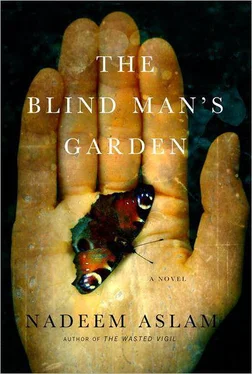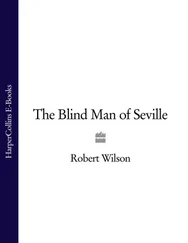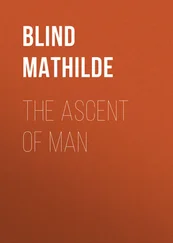It is cold in the night and he hears helicopters hovering overhead, real or imagined, and when he wakes in the dawn light the woman is already up and has a fire burning in the corner of the room used as a kitchen, huddling over it in her thin clothes. Mikal crawls out from under the blanket and puts on his boots and walks out to study the morning as it shapes itself out of the darkness rich with gleams.
When he is ready to leave, after drinking a bowl of tea with them, the man decides to walk with him partway into the mountains, through the corridors of various limestones, often much contorted, and there, over ancient hieroglyphs carved onto calcareous flagstone, he draws Mikal the route to Peshawar, his marks moving over and through the Buddhist writings, between them and incorporating them. Mikal makes him take some of the money before they part.
Around noon he spends an hour on the edge of a cliff, sharpening the knife. A white lamb’s skull lies in an eagle’s nest just below him on the cliff face. He licks the back of his wrist and tries the blade on the hair. It is sharp but there is nothing to kill. In the evening he scoops out termites from a hollow tree and eats them, spitting out the bitter heads like pips, and has to enter the tree a few moments later on hearing helicopters, the insects climbing onto his face and clothes. Did the boy who wanted to go to America tell them about him?
He walks all through the night, Venus appearing as the hours go by and moving with him. Lyra, Pegasus, Piscis Austrinus, and all the other constellations that he hasn’t seen since he was captured at the beginning of the year are now pulsing above him, but he cannot read them fully, the shapes tangled, or threadbare like beads missing from a piece of needlework. He has forgotten some of the names, while in other cases it is the shapes and locations associated with the remembered names that he cannot recall.
From the faintly rotting corpse of a jackal he extracts the bones with the knife, cracking them open to suck out the marrow sealed inside, still without taint. He had gained some weight from the food the Americans had fed him at the prison but now he is exhausted. At dawn he falls onto his side with his eyes closed, lying on feldspar grit and stiff clay at a river’s edge. At noon he sees a rabbit in the meadow twenty feet ahead of him. He stops walking and puts two fingers to his teeth and whistles and the rabbit freezes. He takes the knife from his pocket and opens it and he watches as the blade slices the tips of the long grass on its way towards the animal. Catching the sparks from a struck rock onto a piece of dry moss, he builds a fire and roasts the skinned rabbit, eating every last morsel, not knowing if his mutilated hands will allow him the same luck again.
They don’t. He fails several times and the next day in despair he picks up a snake by its tail and, like a whip, slams the head against the rock under which it had been sheltering. And then once again to be sure. Severing the head he peels back the skin, a mute sheath of nibs, and pulls it downwards to separate it from the body. The guts are pulled out along with the skin, leaving the meat. He traps one end between a splice in a stick and wraps the length in a spiral around the stick and ties the other end with stalks and roasts the snake over an open flame.
The journey to Pakistan takes him eight days, staying away from villages, stealing from an orchard, a planted field, nests, staying away from humans because he knows the Americans are looking for him. This time they’ll lock him away for the rest of his life. In Cuba or in America itself. Or he could get the death penalty. When he climbs down out of the mountains at the outskirts of Peshawar, a storm overtaking him in a hail of ice, he hasn’t eaten in two days and he is running a constant body temperature that must be 106.
*
He is still trapped, the cage is just bigger. On several occasions he stands with the receiver of a payphone in his hand but cannot dial in case the Americans are following him. When he leaves after the call, they will trace the number. They will go to Heer and take away Basie, Yasmin, Rohan, Tara and Naheed, to put them in the cages in the brick factory. He makes several haphazard journeys into surrounding towns, within the coronet of mountains and hills that surrounds Peshawar. Getting into a bus without asking the destination, he disembarks halfway and changes direction, or continues in the same direction but on the next bus. When he is convinced at last that there is nobody behind him, in a small town thirty miles outside Peshawar, he breaks into a place called Look Seventeen Beauty Parlour and from there dials the number of Basie and Yasmin’s house. No one picks up. He rings Rohan’s house and Yasmin answers, her voice like electricity through him. Hearing her and not being able to respond makes her feel further away than she is. He is an exile in his own homeland, his eyes filled with uncrossable distances. What ghosts must feel. He hangs up and stands there, shaking from the fever. The interrogators at the brick factory had said one day that the woman screaming in the next room was Naheed. Was he told that or is he just imagining it? He knows he must go to Heer to see if they have captured Naheed. And I still have to find Jeo .
*
He opens his eyes and sees Akbar’s.
For a moment he thinks he is back in one of the cages. But then he sits up and recognises the place where he had taken shelter — the cramped windowless space under the mosque in Coppersmiths’ Bazaar in Peshawar, where the torn copies of the Koran are kept.
‘Are you talking much nowadays?’ Akbar smiles.
He tries to speak but his throat hurts. His flesh is burning, the earthen floor under him damp with sweat.
‘The Americans let you go too?’ Akbar says.
Mikal nods. For now .
‘I saw you from the other side of the bazaar. You were on the roof.’
‘I was trying to find the constellations,’ he says. He raises his trembling hand and places it on Akbar’s. ‘I don’t remember you telling me you were from Peshawar.’
‘I am not. Just visiting.’
Mikal lies down again. ‘What time is it?’
‘Three.’
‘Day or night?’
They talk for a few minutes, Mikal telling him about shooting the two Military Policemen, and though Akbar wishes to know the details he is too weak to continue, is exhausted from the few words he has spoken, lowering his head onto the wet pillow of Koranic pages and closing his eyes, lost between several worlds.
*
He senses daylight and there are movements and words near him. From time to time there is a bitter taste in the mouth, or a needle punctures his arm, after which the darkness returns. Eventually he manages to keep his eyes open long enough to see a girl standing beside him and he does not wish to breathe or blink for fear of breaking the spell, just remaining there on the very edge of inhabited time. She wears a white shalwar kameez, the sleeves coming down to her wrists, her fingers pale as porcelain.
Over several drowsy moments the details assemble into a complete picture — the room is large and clean and the walls are whitewashed. There is a tree outside the window whose foliage grows in seven-leafed fans.
She is supervising an older woman, who appears to be a servant but is respectfully addressed, and is pressing a piece of ice wrapped in flowered cloth onto Mikal’s forehead. The moment the girl notices that he has regained consciousness she pulls her veil down onto her fine-boned face and withdraws from the room in utter silence. The grey-haired older woman continues to tend to him until Akbar enters, and then she too leaves.
‘I’ve brought you a visitor,’ Akbar says, holding a snow leopard cub pressed against his chin, the fur so soft there are furrows in it from the boy’s breathing.
Читать дальше












